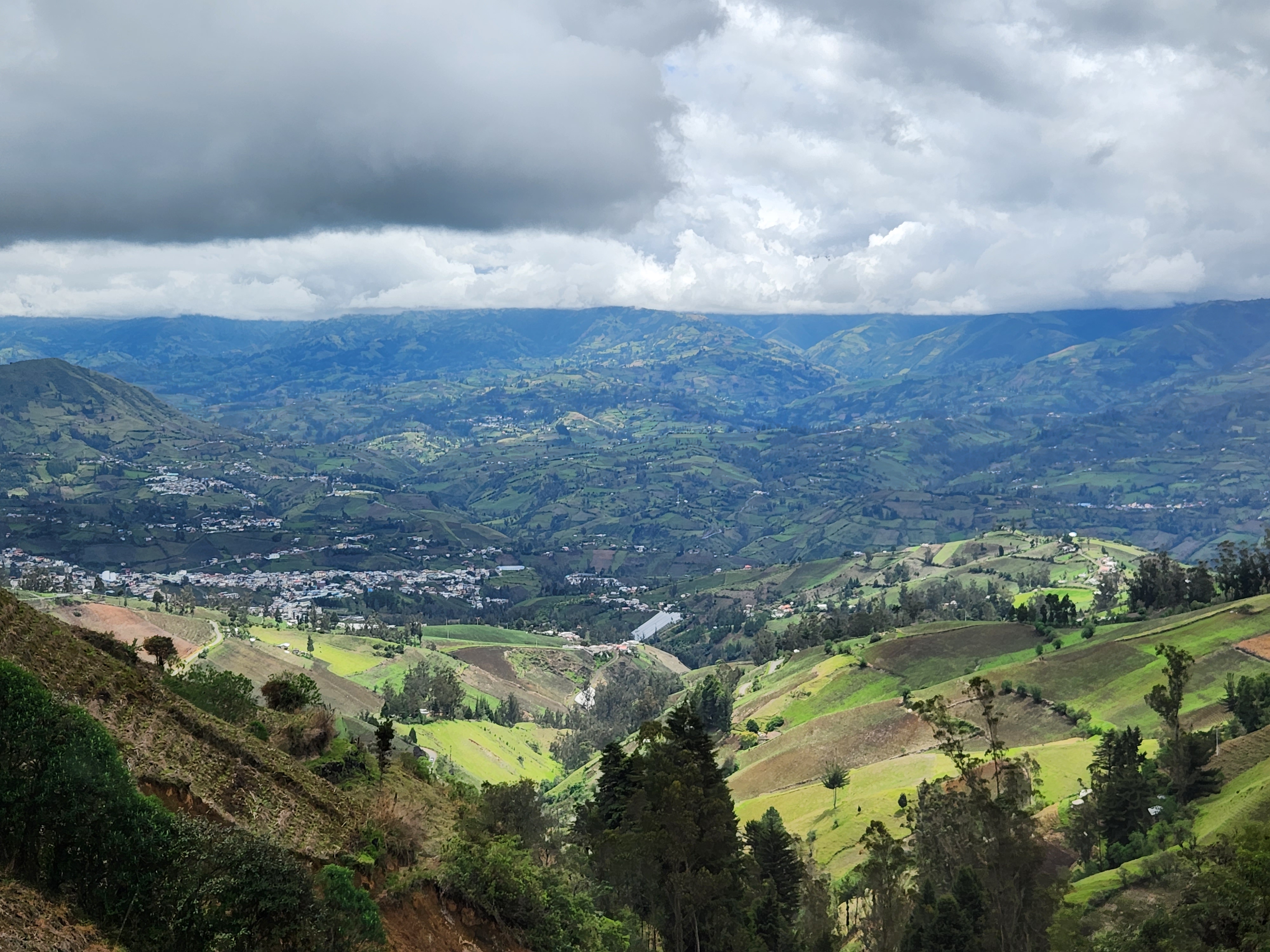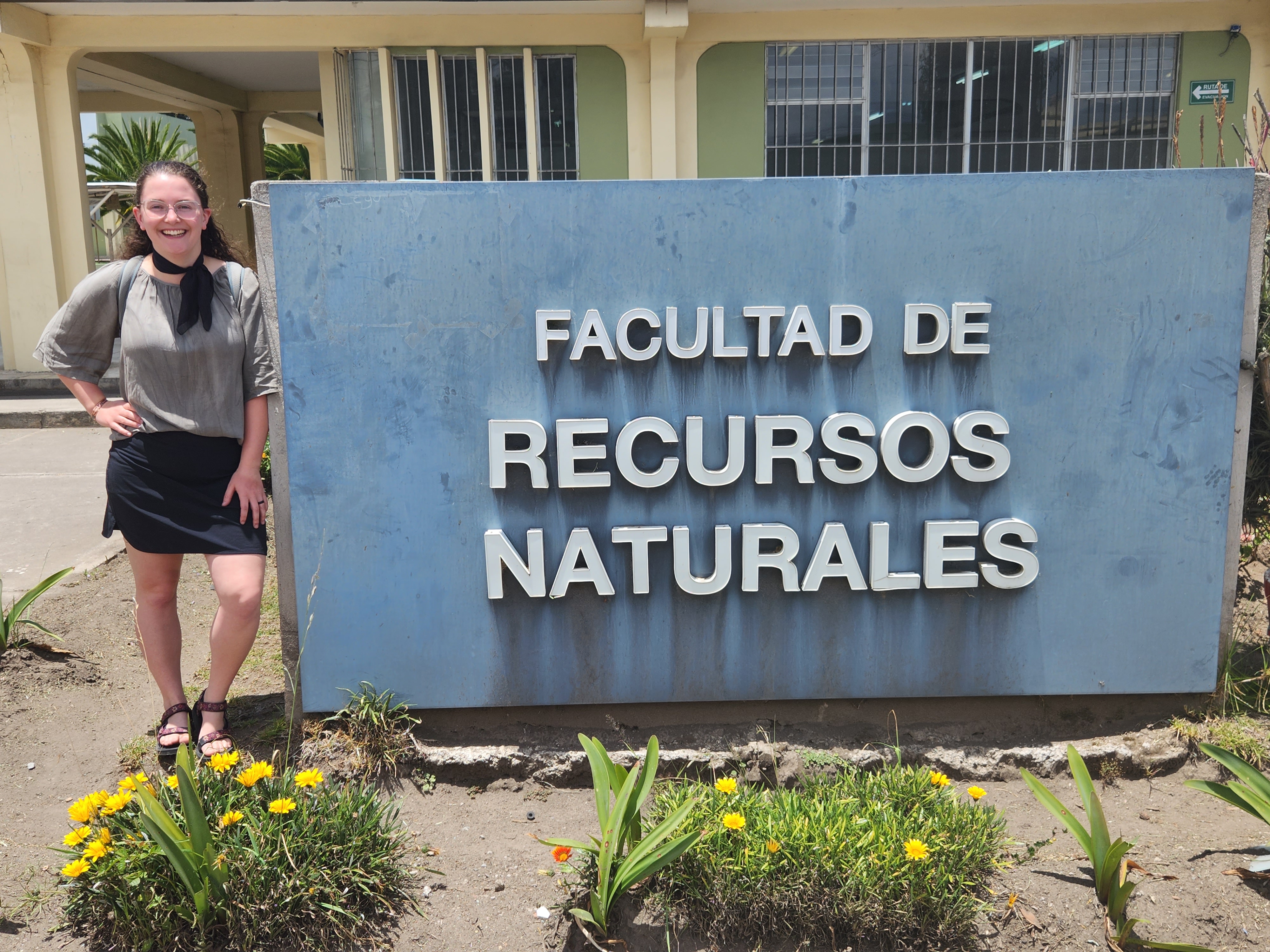
USask students experience Ecuadorian agriculture first-hand in field course
Global skills and knowledge gained by students in experiential, engaged learning opportunity.
By BRETT MAKULOWICHThe PLSC 444 Ecuadorian Agricultural Field Tour is offered by the College of Agriculture and Bioresources (AgBio) at the University of Saskatchewan (USask). The course is led by Dr. Randy Kutcher (PhD), professor in the Department of Plant Sciences at AgBio and Ministry of Agriculture Strategic Research Program Chair in Cereal and Flax Crop Pathology.
Winter Term 2023 marked the fourth time the course has been held since its inception and the first time since the pandemic. A group of 10 AgBio undergraduate students led by Kutcher headed to Ecuador over mid-term break for a life changing experience.
“It’s important for students to have experiences like this as it is a step toward internationalizing USask,” said Kutcher. “This field course provides students an experiential learning opportunity to experience differences in culture, agriculture, socioeconomics, climate, and landscape. Students acquire global skills and knowledge throughout the course.”
During the 10-day trip, students toured research plots and commercial operations to learn about field and horticultural crop production in Ecuador. The students also interacted with Ecuadorian students and faculty at two universities: ESPOCH University and the Central University of Ecuador.
Abigail Puffalt, a fourth-year agronomy student who is minoring in agribusiness, participated in the field course.
“I had an amazing experience, and this has made me want to travel more,” said Puffalt. “Overall, I really enjoyed the trip and am so thankful for the once-in-a-lifetime experience to learn about myself and a new culture and way of doing things!”

A standout experience for Puffalt was touring a banana plantation in Ecuador.
“We had the opportunity to be involved in the whole process, right from the banana tree to the box of bananas that gets sent to the grocery store,” said Puffalt.
Other hands-on learning activities on the trip included milking cows and sheep and processing the milk into cheese; visiting coffee, cacao, and rose farms; and touring local agriculture businesses and a fruit research station. The students also hiked the Quilotoa volcano in the Ecuadorian Andes.
During the Ecuador university visits, both the USask and Ecuadorian students presented on crop production and research in their own countries. These discussions allowed students to gain global perspectives about how other countries approach agriculture. Gaining global perspectives is important for students on their journey to becoming well-rounded leaders in their community.
The field course received funding from a variety of sources. This includes Global Skills Opportunity (a national outbound student mobility program funded by Employment and Social Development Canada and administered jointly by Colleges and Institutes Canada and Universities Canada). It also received funding from the David Christensen Travel Fellowships Fund in AgBio, and from Global Engagement Scholarships provided by the USask International Student and Study Abroad Centre.

